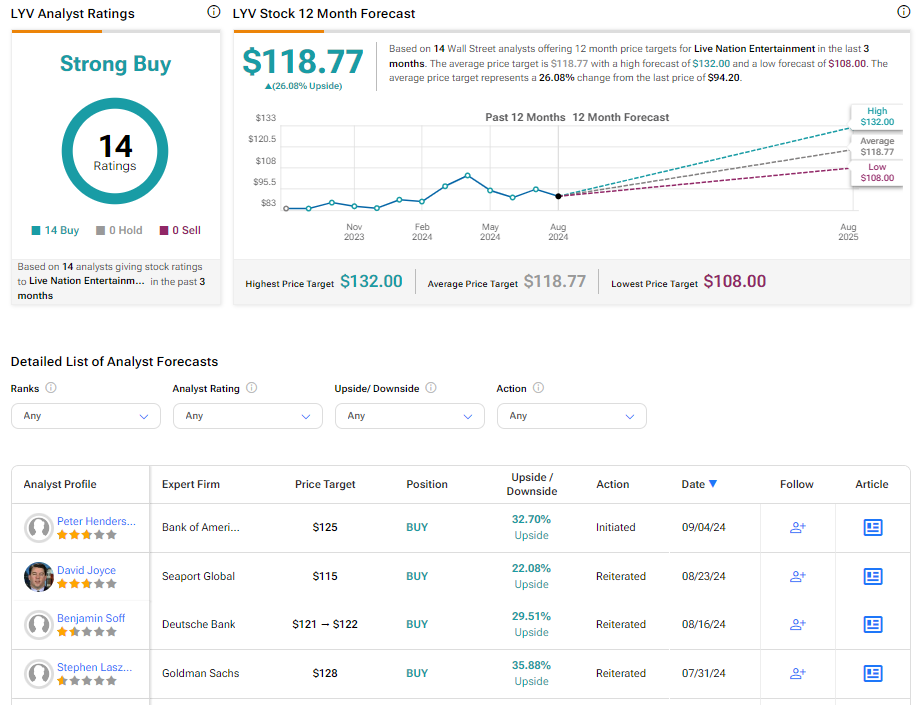Live Nation Entertainment’s (LYV) ticketing service unit, Ticketmaster, is under investigation by the UK’s Competition and Markets Authority (CMA) for its pricing practices related to a 2025 Oasis concert. The probe focuses on the use of “dynamic pricing,” a model under which the company adjusts ticket prices based on demand.
Confident Investing Starts Here:
- Easily unpack a company's performance with TipRanks' new KPI Data for smart investment decisions
- Receive undervalued, market resilient stocks right to your inbox with TipRanks' Smart Value Newsletter
It’s worth noting that the investigation was triggered by a sharp increase in ticket prices for the Oasis concert. Initially priced at £150, the ticket cost surged to a staggering £465 per ticket due to Ticketmaster’s pricing model. This sparked outrage among fans and raised concerns about Ticketmaster’s pricing tactics.
However, Ticketmaster defended its pricing model, stating that it does not set concert prices, as these are determined by the event organizer. In contrast, Oasis alleged that dynamic pricing was used without their knowledge and has expressed disappointment with the ticketing plan.
Ticketmaster Encounters Growing Controversies
This is not the first time Ticketmaster has come under scrutiny over its ticketing practices. Last month, the Justice Department and several U.S. states sued Live Nation, alleging it of anti-competitive behavior. Similar issues arose in 2022 when Ticketmaster’s platform struggled to handle the overwhelming demand for Taylor Swift’s Eras Tour tickets.
Interestingly, the CMA’s investigation could have major implications for the dynamic pricing model in the UK. If found to be unfair, Ticketmaster may face restrictions or penalties, potentially impacting its future pricing strategies.
Is LYV a Good Stock to Buy?
Overall, Wall Street is optimistic about the stock. LYV has a Strong Buy consensus rating based on 14 Buy ratings. The analysts’ average price target on Live Nation stock of $118.77 implies a 26.08% upside potential from current levels. Shares of the company have declined 5.03% over the past six months.

Looking for a trading platform? Check out TipRanks' Best Online Brokers , and find the ideal broker for your trades.
Report an Issue









